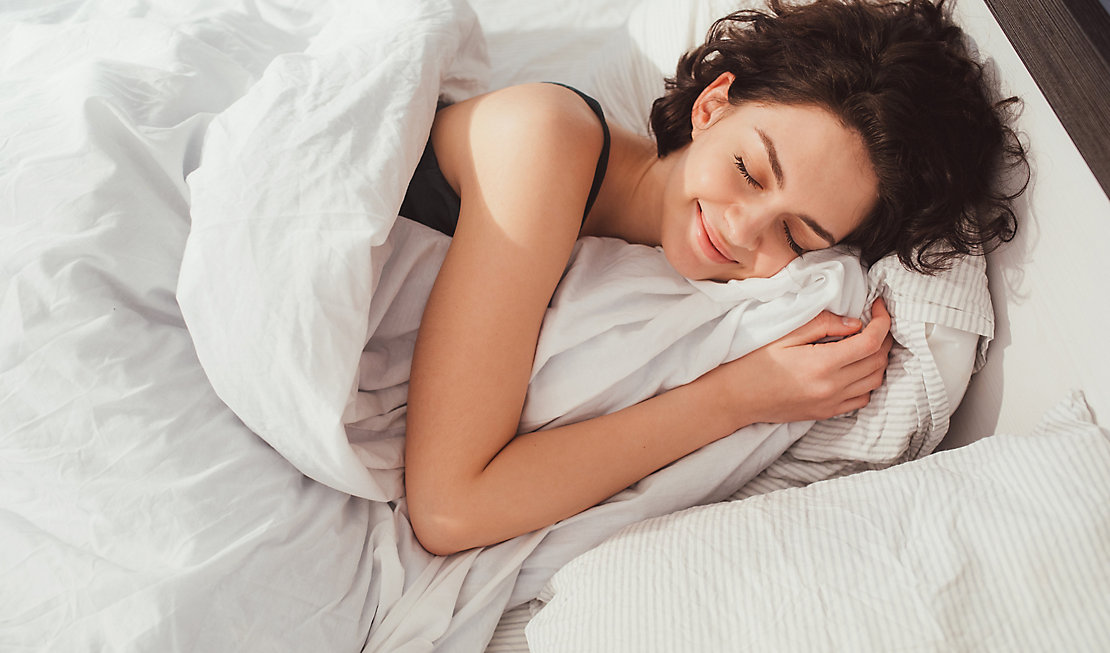How often do you feel sleepy during the week? A day? A couple of days? The whole week? You are not alone. The National Sleep Foundation found that 44% of US adults felt sleepy 2-4 days/week and 28% felt sleepy 5-7 days/week (National Sleep Foundation Sleep in America Poll March 2020), often leading to headaches, irritability, and malaise.1 Not getting enough sleep could also have effects on memory, immune status, weight, and long-term health.
Sleep is a critical component of a person’s overall health and well-being, enabling the body to repair and restore physically and mentally, and to be fit for the upcoming day. A good night’s sleep improves concentration, performance, and productivity, and enhances the immune system. Adults typically require 7-9 hours of sleep nightly, with some individual variation. The amount of sleep needed is largely age dependent. For example, children need more sleep to help their bodies grow and develop, and older adults, aged 65 and over, require less.
The reality is a large group of American adults are not getting the sleep they need despite the expert recommendations. Humans are the only mammal that willingly delay sleep! Many people undervalue and deprioritize sleep for fitness and nutrition, work, and other interests. Other factors also impact sleep, such as diet, alcohol and caffeine consumption, use of electronic devices, exercise, or even your bedroom environment.
While it is important to get the recommended amount of sleep nightly, sleep quality – how well you sleep – is also critical to your health. Some signs that you need to improve your sleep quality include feeling groggy, taking more than 30 minutes to fall asleep after getting into bed, regularly waking up more than one time nightly or staying awake more than 20 minutes after waking up in the middle of the night.

2. Develop a Nightly Routine
Start by making sleep a priority and setting a schedule – be consistent both at night and in the morning – to help normalize sleep as part of your daily practice. Develop a nightly routine to prepare for bed, focus on winding down 30 minutes before bed, creating a sense of relaxation, dimming the lights. Unplug electronics 30-60 minutes before bedtime – electronic devices stimulate your mind and their screens give off blue light, which may decrease melatonin production (melatonin is a hormone the brain produces in response to darkness to help you feel tired and ready for sleep).

4. Create an Optimal Sleep Environment
Your bedroom is not your office, nor your playroom. A calming, tranquil environment invites sleep. Think about being “snug as a bug in a rug”. Ensure your bed is comfortable – the mattress, bedding and pillows you choose all impact restfulness. Block out noise and light to encourage sleep. Set a comfortable, cool temperature – around 65 degrees Fahrenheit.

To get the restorative sleep your body needs, it is important to make sleep a priority and follow good sleep hygiene. Take a holistic approach with a consistent schedule, healthy daily habits, nighttime routine, an optimized bedroom environment and natural sleep aids as needed.
Subscribe to our Blog
References
- https://www.sleepfoundation.org/wp-content/uploads/2020/03/SIA-2020-Q1-Report.pdf
These statements have not been evaluated by the Food and Drug Administration. This product is not intended to diagnose, treat, cure, or prevent any disease.
Please note: This website is not aimed at consumers as the information herein contained does not make reference to finished products.

?$featuredContent2$)

